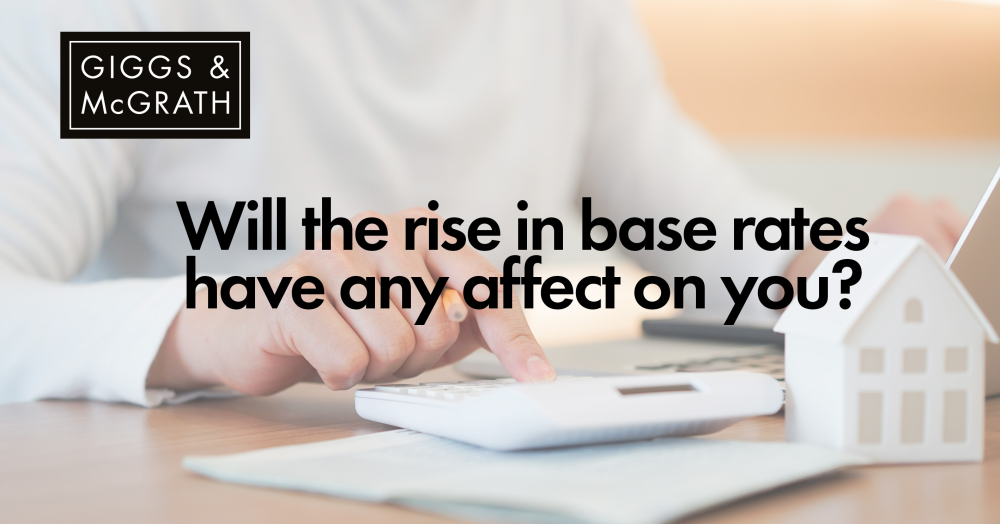The Bank of England has recently increased its base rates from 2.25% to 3% so you may be concerned about what that means for your mortgage payments.
There are 2 types of mortgages, a variable rate or tracker type mortgage and a fixed rate mortgage.
The recent base rate increase will affect those who are on a variable rate or tracker type mortgage because they’re linked to the banks base rate. The 3 quarters of a percent rise will probably see the interest rates on your mortgage go up by the same next month, increasing your monthly payments.
A fixed rate mortgage works slightly differently as the interest rate stays the same for the duration of your deal.
Where do you stand if you’re due to renew your fixed rate deal now or soon though?
Over the last few months there have been two rapid rises in fixed rate mortgages. The first one was due to mini budget. The wholesale money market (the swap rates), where lenders get their money from are dictated by the economy, so after the mini budget, the financial market was concerned about how the UK was going to pay for all the tax cuts so the cost of borrowing money went up.
The second increase was instigated by the rush on remortgages because of the increase in the cost of borrowing money. Lenders were inundated with people wanting to change their mortgage. If the lender was the cheapest one on the whole of the market, then they got a big chunk of the business, but it meant they struggled to cope with the volume of applications. To counter the influx they increased their prices, which only served to move the applications on to the next cheapest lender. It snowballed until there was an artificial increase in prices across the board as lenders tried to discourage people from going with them so they could keep up with the business.
However, since that initial inundation, the money market rates have gone back to below the pre mini budget levels, so the cost of borrowing money for the lenders has reduced. The lenders have also started to catch up with the backlog of business because it’s been quieter since the rates went over 5%.
What we’re starting to see now is that the lenders are beginning to reduce their fixed rates slowly. ¼% here, ½% there. There are also swap rate deals out there for existing customers where if you’re at the end of your fixed rate mortgage and you want to stay with your lender, they might bring down those rates from ½% to 1% potentially.
Even though lenders are within their rights to put their fixed rates up again in reaction to the Bank of England rate increase, it doesn’t necessarily follow that they will. We believe the increases over the last month were more likely to have been artificially high because the lenders were trying to cope with the massive increase in the volume of business, rather than because of the cost of borrowing the money.
So, when the lenders start buying in further tranches of money, we think that the interest rates will start to come down a bit, not to the 1 to 2% that we’ve benefitted from in the last few years, but probably more like in the early 4% mark.
We don’t have a crystal ball but going by how the lenders have reduced their rates this week, we think the trend may continue and so the story isn’t as doom and gloom as it could have been.
Get in contact with our trusted and impartial partners,
Assured Mortgage Advice, if you want to discuss how the base rate rise could impact you.

